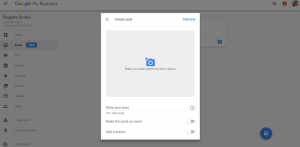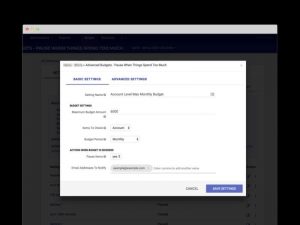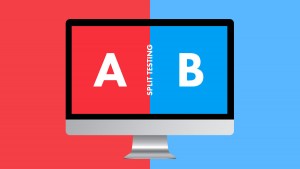— September 6, 2018

rawpixel / Pixabay
The most common misconception about a franchise is that it’s a “business in a box,” but in reality, a franchise is far from a pre-packaged business. In fact, it’s only a contractual agreement between a franchisor and a franchisee, or a big company and an individual (you!). Aside from the basics, everything else is up to you to build.
Running a franchise is a lot more complicated than it may seem. Even before entering into a franchise agreement, you’ll need to answer many questions, such as demand in your area, the franchisor’s required costs, and your own managerial style.
So, how do you know whether buying into a franchise is the right move for you—or if you’re better off building your own business from the ground up? We’ll run you through the upsides and the downsides of running a franchise, and the key considerations you’ll need to know before you sign on with a big business.
Buying a Franchise: The Pros
An obvious upside to buying a franchise is that you’ll have access to a tried-and-true business model. The research and processes that the parent company have tested and proved trickle down to you, simply by virtue of being a franchise owner. If you aren’t looking to invest in finding the most efficient management processes or testing market fit, then buying a franchise can be a great move.
And even though a franchise agreement requires that you follow the franchisor’s specifications to ensure uniformity across locations, you’ll ultimately be in charge of the rest. Renovating, paying rent, hiring and firing, and other day-to-day operations will fall to you as the franchise owner. All told, buying a franchise can be a less risky way to own and operate your own business than starting from scratch.
Buying a Franchise: The Cons
If you want to have more control over testing and implementing business strategies, then you may end up feeling restricted by the parent company’s requirements. Although owning a franchise generally poses less risk, you’ll still be affected by the parent company’s status and performance. If this happens, you won’t necessarily have the freedom to adapt to the market as you please.
Another downside is that you may not have control over how much money you need to invest in the franchise. For example, some franchisors have appearance standards and will require you to pay for renovations that you may not have otherwise felt you needed, which will add to your overhead costs. In addition, even though your parent company may have a well-known brand, it’s not uncommon to lose money in the first year or two as people discover your new location.
Must-Knows Before You Buy a Franchise
There are a number of factors to critically examine before entering into a contract. It could prove invaluable to go over terms and financials with a CPA, lawyer, or other expert to ensure you’re assessing your options properly. When choosing a professional for guidance, just be wary of brokers and consultants, as their motivations may be to earn commission off a sale rather than actually help you find your best option.
Here are a few points to consider about buying a franchise, and tips about how to go about the process successfully:
Find the Franchise That Works for You
As you start your search, narrow in on franchises that align with both your location and your skill set. Starting with your community, do your research to see if there is a demand for the products or services that the franchisor offers. Be aware of any competition that may exist, whether there are parent company locations nearby or too many outside competitors surrounding the location. Next, consider your skill set and interests. Will you be able to effectively carry out the demands of the industry you’re choosing? Owning a franchise is a full-time job, so you want to be sure it’s in a sector you are interested in.
Do Your Due Diligence
Once you’ve landed on a franchise you’d like to buy into, it’s a good idea to do your research about the franchisor by talking to other franchise owners, both past, and current. You can find owners by visiting existing franchises in the area, and by looking at the Franchise Disclosure Document (FDD), which lists all current franchisees and those who left the system in the past year. (Note that you only receive the FDD after the franchisor agrees to review your application.)
Be sure to ask current owners about their financials, operations, and the challenges associated with their franchise. Ask former franchisees about why they chose to leave the system.
Dive Deep Into the FDD
After thoroughly interviewing former and present franchise owners, examine the FDD for your franchisor’s bankruptcy, litigation history, and financials. But bear in mind that you’ll need to ask the appropriate questions about each financial metric to get a full picture. For example, average revenue will paint a picture of national performance, but may not be indicative of performance by franchises in your area. If the FDD includes net profits, note that these can only base off company-owned outlets, as these numbers are not available to the parent company.
Consider the Costs
When you buy a franchise you’ll need to pay fees in addition to the standard costs of operating a business.
Initial fees occur as a one time fee when purchasing the franchise. These fees can range from $ 20,000-$ 50,000 for a regular franchise, to $ 100,000 and up for a master franchise. After initial fees, royalty payments are ongoing costs that occur regularly as part of the franchise agreement. These are for the right to use the franchisor’s name and other branded materials, and are often charged as a percentage of sales, usually between 4-6%.
Keep in mind that these fees don’t often include the costs of rent, initial inventory, equipment, licenses, insurance, or other ongoing expenses. It’s likely that you’ll need a loan to cover those costs.
Even if you are looking to fund the purchase with a business loan, you’ll need some cash upfront to secure one. Franchisor financing programs want to see that you have 20-25% of the total cost of the franchise available in cash and ready to invest.
Will Buying a Franchise Work for You?
Now that we’ve gone through everything to consider when going through the process of buying a franchise, it’s time to assess if franchising is the right business decision for you. Do you have the funds available? Are you comfortable with the restrictions the parent company will impose? Are you willing to lose money initially as you build up your business?
Buying a franchise isn’t necessarily an easy way to start your own business. It will require a lot of work and business savvy to carry out successfully. That said, if you do decide that buying a franchise is right for you, it can be a rewarding way to run your own business with plenty of support from a tried-and-true business model.
Business & Finance Articles on Business 2 Community
(43)
Report Post







